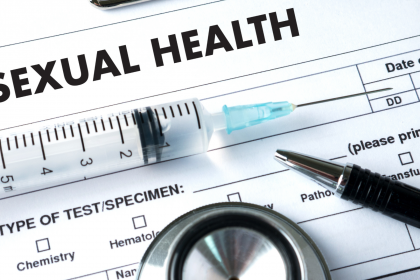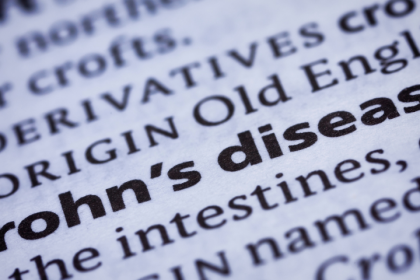Postpartum depression affects around 10% of all mothers and is characterized by a low mood, thoughts of suicide, changes in appetite or sleep patterns, and feeling out of control.
Postpartum depression is common after the birth of a child. It can affect women who have given birth up to six months after delivery. This time period varies depending on how quickly the woman recovers from childbirth.
Postpartum depression is a mood disorder that occurs after childbirth. It has been estimated that about one in five women experiences it during the first year after having a baby.
Postpartum depression affects women and their babies and can lead to long-term distress. It is important for women to seek help when they are suffering from postpartum depression or know someone who has it because untreated symptoms can be more serious than those of other mental disorders.
This article will provide you with information on what postpartum depression is and give you an overview of the symptoms that it may cause for mothers.
What is Postpartum Depression?
Postpartum depression, also known as postpartum psychosis, is a condition that can happen after the mother has given birth to her child. It is a severe mood disorder that may cause an individual to become depressed or anxious for no apparent reason.
Postpartum depression is caused by hormonal changes that take place during pregnancy, as well as other factors such as genetic predisposition and social pressures.
Postpartum depression appears to be more common in the modern era than it used to be decades ago. This is because other mental health disorders such as depression have been more prevalent in recent years. It does not often happen, but it may happen from time to time.
What Are the Symptoms of Postpartum Depression?
Postpartum depression is a broad term that refers to feelings of sadness, anxiety, worry, guilt, and irritability that occur after childbirth.
The signs and symptoms of postpartum depression can vary from person to person. Some common signs in new mothers are mood swings, sleep deprivation, feelings of worthlessness or guilt, and thoughts of suicide or death. Other people may experience more extreme symptoms such as uncontrollable crying spells or panic attacks.
It is important for mothers to know what the signs and symptoms may be to get help early on if they are struggling with any issues related to postpartum depression. This way, they will be able to realize it before it starts becoming more detrimental in their life and potentially leading them towards a full-blown depressive episode. Some mothers go and buy delta 8 and other medical marijuana products to help them through these periods, while others need more hands-on treatment.
What Causes Postpartum Depression?
Postpartum depression can run in the family, but it is often caused by any number of factors. It can be caused by not getting enough sleep during pregnancy, being too tired to take care of a baby, hormonal changes during pregnancy, or some other factor.
It can also happen when a woman gives birth for the first time, and her hormones may not be fully regulated yet.
The causes of postpartum depression are as varied as the symptoms. Some common factors include not sleeping enough, being overwhelmed with caring for a newborn infant or children, hormonal changes during pregnancy or childbirth, or lack of social support from partners who are new parents themselves.
Additionally, postpartum depression can be triggered by life stressors, including insufficient prenatal care or traumatic birth experiences. Medical negligence, such as these instances, may not only play a role in the onset of postpartum depression but could also lead to birth injuries. Such injuries can be profoundly traumatizing, impacting both the mother and the child in the long term. In such cases, mothers have the option to pursue compensation by collaborating with Birth injury attorneys. While this may not erase the physical and emotional trauma, it can enable them to seek justice for the wrongs committed against them.
How To Recognize Postpartum Depression?
According to the National Alliance for Mental Illness, postpartum depression is a common and treatable condition that affects about 12% of mothers. Depression in postpartum mothers can be manifest in behavior such as crying, weepiness, irritability, and/or anxiety.
Postpartum depression can also be accompanied by physical symptoms like fatigue, shortness of breath, or chest pain. These symptoms are often mistaken for other medical conditions that need to be diagnosed by a medical professional. If it is ruled that this is due to depression, then another medical professional such as a therapist will need to be contacted (check this out) to get the necessary help. More on this below.
Conclusion: How to Help Someone with Postpartum Depression
Postpartum depression is a major cause of maternal mental health disorders. Approximately 50 percent of new moms experience symptoms that can last up to six months, and about 10% go on to develop more severe symptoms and PTSD-type anxiety. As a partner, you can either suggest therapy or similar professional help, or you can try out alternative routes such as CBD-based edibles (click here for an example). CBD edibles can definitely help in calming anxiety for most people, however, these edibles contain no THC, so the person using it would not get a high from this. Usually that is a good thing, but cannabis products that are laced with THC can also be quite effectful in elevating mood and killing anxiety. Using weed products that do contain THC, like weed caviar, can be slightly more helpful as it can be much stronger than CBD, but do not comsume these if they are not legal where you stay.
It is important for everyone to know how to help someone with postpartum depression, as it can harm both the individual and the family as a whole. Make sure you identify what level of support your loved one would like, give them permission to ask for help if they need it, and avoid making judgments about their condition.




